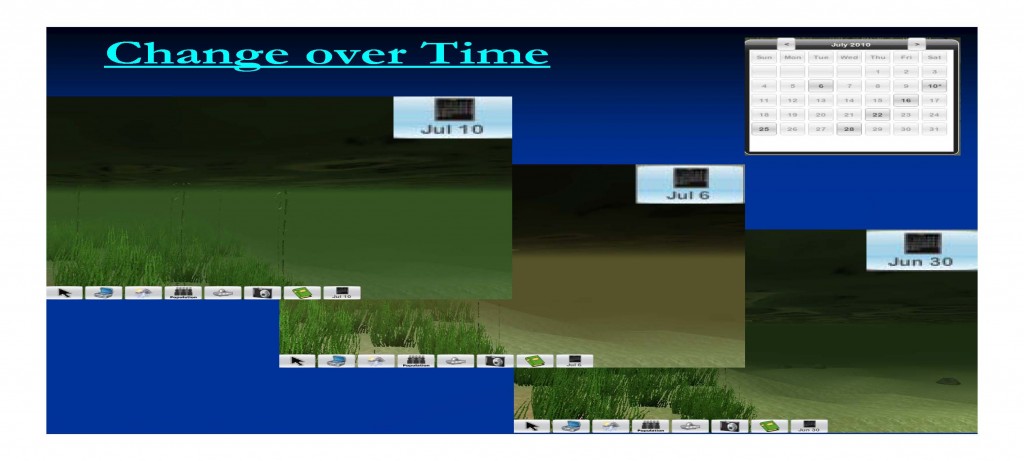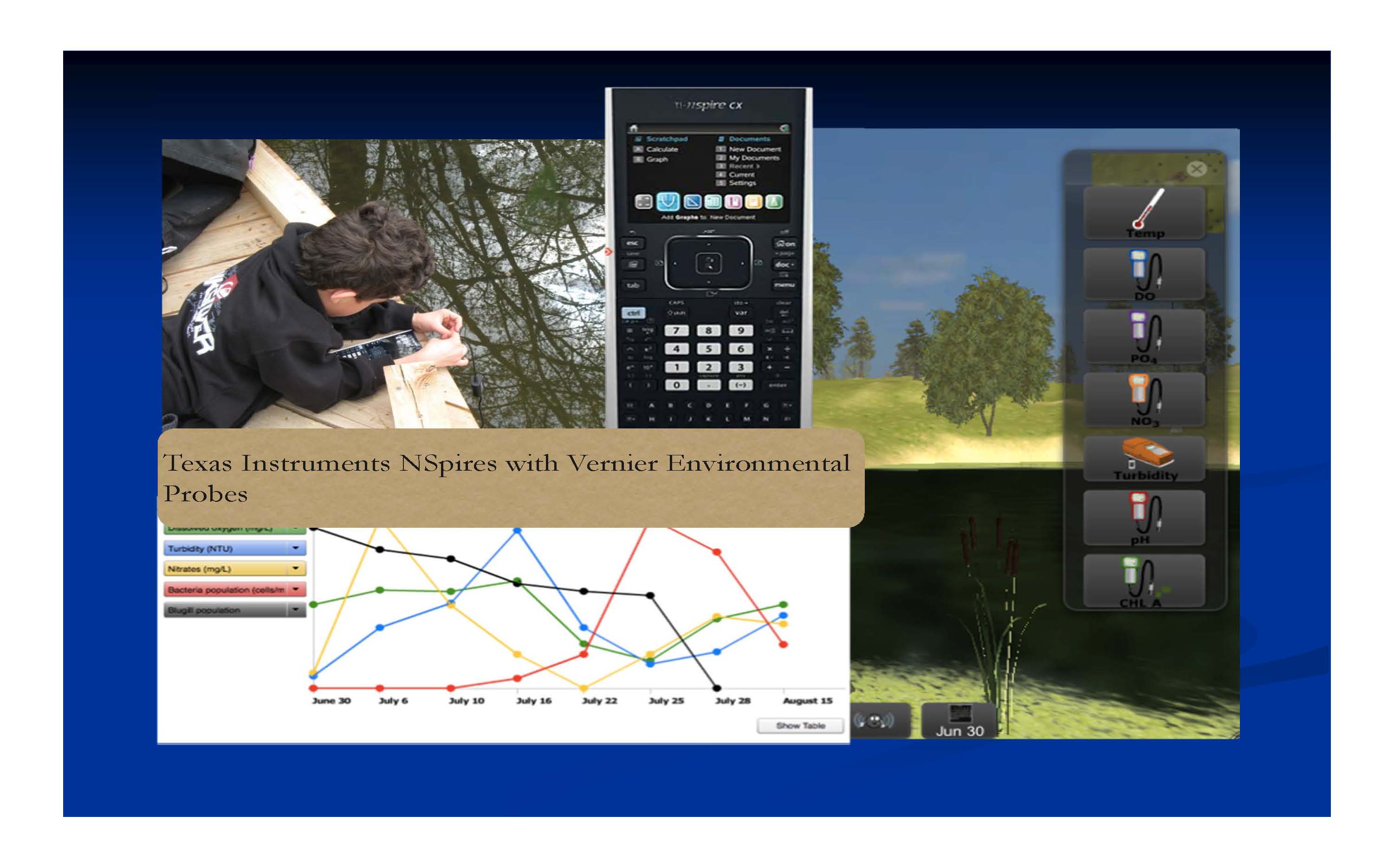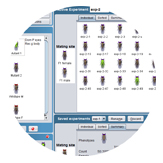 Professor Chris Dede
Professor Chris Dede
Title: How Immersion in Virtual and Augmented Worlds Helps Students in the Real World
Seminar Date & Time: Friday, September 28, 2012 @ 2:00 pm
View the slides from Professor Dede’s Seminar
Listen to the audio from Professor Dede’s Seminar
Professor Chris Dede is the Timothy E. Wirth Professor in Learning Technologies at Harvard’s Graduate School of Education. His fields of scholarship include emerging technologies, policy, and leadership. His current research includes seven grants from NSF, Qualcomm, the Gates Foundation, and the US Department of Education Institute of Education Sciences to explore immersive simulations and transformed social interactions as means of student engagement, learning, and assessment. In 2007, he was honored by Harvard University as an outstanding teacher, and in 2011 he was named a Fellow of the American Educational Research Association. Professor Dede has served as a member of the National Academy of Sciences Committee on Foundations of Educational and Psychological Assessment and a member of the 2010 National Educational Technology Plan Technical Working Group. His co-edited book, “Scaling Up Success: Lessons Learned from Technology-based Educational Improvement”, was published by Jossey-Bass in 2005. A second volume, which he edited, called “Online Professional Development for Teachers: Emerging Models and Methods”, was published by the Harvard Education Press in 2006. His latest co-edited book, “Digital Teaching Platforms”, was published by Teachers College Press in 2012.

Figure 1. When investigating the pond ecosystem in EcoMUVE, the students can see that the pond turbidity increased and the pond water has become green over time.
Professor Dede’s seminar, called “How Immersion in Virtual and Augmented Worlds Helps Students in the Real World”, examined the implementation of immersive learning techniques in the classroom. Teachers face many challenges in the typical classroom, including uninspired students, lessons that are disconnected from reality and un-engaging, as well as assessments that are unable to assess complex student learning. Situated learning experiences, such as the learning experience found in an apprenticeship, enhance student learning. Professor Dede’s work is focused on immersive learning techniques, such as multi-user virtual environments (MUVE), virtual realities and mobile learning, which are all the modern-day equivalent of implementing situated learning in the classroom.
Professor Dede discussed two different immersive learning programs during his talk. The first program, called EcoMUVE (Ecosystems in a Multi-User Virtual Environment), is a multi-user virtual environment in which students are immersed in a virtual environment and interact with avatar-based identities to investigate an ecosystem. The EcoMUVE project is designed for use in middle school science classrooms. There are two MUVE-based modules (pond and forest ecosystems) that are each one-week long during a four-week ecosystems curriculum (Video on the pond ecosystem). During his talk, Professor Dede highlighted the pond module in which students are tasked with determining why all the fish died in a pond. To solve this mystery, students are assigned to act as one of four different experts to investigate a specific phenomenon within the pond ecosystem and then present their findings to the rest of the group. One of the first observations that the students make is that the turbidity and color of the pond water changed over time in the virtual pond ecosystem (Figure 1). By exploring the surrounding environment, measuring the pond water properties, and researching the pond life, the students investigate the multiple factors that affect the pond ecosystem. The group as a whole considers all of the findings to reach a final conclusion. EcoMUVE is a phenomenal way to provide a fun, educational experience to enable students to better understand how a complex series of events can affect an ecosystem.

Figure 2. Students use EcoMOBILE on wireless devices to create an augmented reality and supplement their educational experience exploring a local pond ecosystem while on a field trip.
From 2008-2011, EcoMUVE was implemented in 121 classrooms. Professor Dede is now analyzing the data that they have collected. Not only did they collect every student’s decisions while completing the program, but they also administered assessment tests before and after the assignment to assess student learning. Preliminary evidence suggests that learning through exploration of the ecosystem in a virtual environment enhances students’ learning.
The second program, called EcoMOBILE (Ecosystems Mobile Outdoor Blended Immersive Learning Environment), is an “augmented reality” in which EcoMUVE can be accessed on a mobile device. With the widespread adoption of advanced smartphones, Prof. Dede has implemented the use of mobile technologies that enable the students to interact with information, videos and visualizations while physically exploring a specific location outside of the classroom. Through EcoMOBILE, students can conduct a more advanced exploration of a local pond or water ecosystem by interacting with a wireless device to capture pictures, videos and voice recordings (Video on EcoMOBILE). Additionally, students utilize measurement tools to make real-time readings such as water turbidity, temperature and pH, amongst others, which are the same types of data that are simulated in EcoMUVE (Figure 2). Now Professor Dede and his group are developing a way for users to augment any water environment near a school. This will enable students to explore any water ecosystem that is of interest to their particular school and bring a student’s reality into the learning experience.
Professor Dede’s seminar highlights the importance of immersive learning that provides a sense of reality that cannot always be provided in a typical pen-and-pencil lesson in the classroom. The educational benefits of simulated experiences in augmented realities go beyond learning about ecosystems and piquing student interest in a virtual environment. Programs such as EcoMUVE and EcoMOBILE engage students in group-learning and, by allowing the student to be immersed in a virtual environment, create a better understanding of complex systems and causality.



